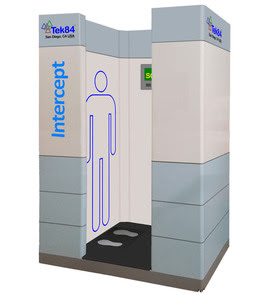Screenings for Missouri prison staff, visitors, volunteers starts August 1

Supporting the effort to safeguard our facilities and protect staff and residents from dangerous contraband, on August 1, 2024, the Missouri Department of Corrections will begin using body scanners for staff, visitors, vendors, contractors and volunteers entering adult institutions.
|
The Intercept full-body scanner will be used in conjunction with walk-through metal detectors, hand-held metal detectors and X-ray baggage scanners to keep out weapons, drugs and other prohibited items that may compromise safety and security. The name and ID number of each person entering a facility will be entered into the body scanner system and stored before the first scan. Visitor ID numbers serve as the scanning ID numbers for visitors. The ID number of a driver’s license, non-driver’s license or passport will be used for all other non-staff members. Before a person steps into the full-body scanner, the device takes a photograph that is stored within the body scanner system. |
How It Works
Each person entering a front entry search point will push a random search selector, which determines who is subject to a full body scan. The person being scanned stands inside the Intercept and remains motionless as the operator initiates a four-second scan. The image displays on the workstation monitor, and the operator inspects the image for concealed objects.
Who May Be Scanned
Anyone 18 or older is subject to a scan using the full-body scanner unless they have an approved exception, such as a verified medical condition or pregnancy. Non-staff members, such as offenders’ visitors, vendors and contractors, may submit a request for an exception to the warden or superintendent of the facility.
Safety
The Intercept is safe. It operates as a general-use system under guidelines defined by ANSI/HPS N43.17 (American National Standards Institute / Health Physics Society). Intercept acquires images by using an extremely low level of transmission X-ray. According to the U.S. Food and Drug Administration (FDA), which regulates the Intercept, the dose from one screening with a general-use X-ray security screening system is so low that a person would have to be screened more than a thousand times in one year in order to exceed the annual radiation dose limit for screening that has been set by expert radiation safety organizations.



